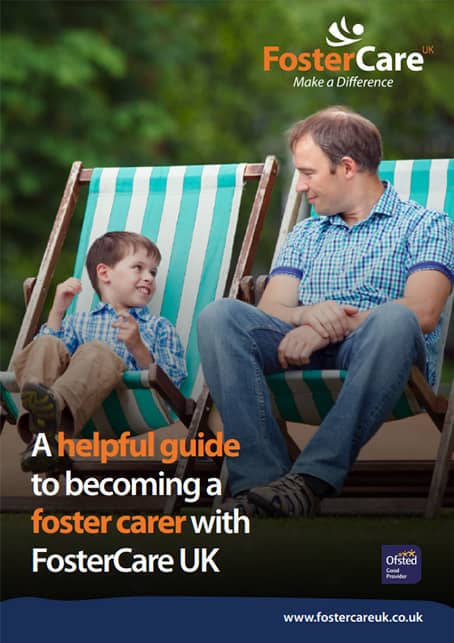


What happens when a child is taken into care?
Benefits of being a foster parent
What is a care leaver?
How to become a foster parent
How to foster a child
What are the foster care requirements
Can I choose who I foster?
Fostering with pets FAQ
How long does it take to become a foster parent?
What is the role of an independent fostering agency?
Fostering a disabled child
Tips for coping when foster placements end
Do foster carers pay tax?
What to expect in a fostering assessment
Common Fostering Challenges and Solutions
What disqualifies you from being a foster carer?
Muslim Fostering
Fostering as a single parent
Can you foster a child with a criminal record?
Can you work and foster?
Top 10 fostering myths
Can I foster if…?
Can I foster and rent?
LGBT Fostering: can I foster if I’m gay
Top transferable skills to become a foster carer
Can you foster with a mental health condition?
Christian Fostering
Sikh Fostering
Cultural Diversity in Foster Care
How to encourage foster children to read
Reasons for a child to be taken into care
Tips for coping with attachment disorders in Foster Children
Fostering vs Adoption
What happens when foster parents get divorced?
What is reunification in foster care?
How to deal with foster child bullying
A guide to the foster care handbook
Guide to fostering young children
Types of self-harm
A guide to fostering teenagers
What are the signs of depression in foster children?
Whilst it is commonly thought that having a pet will hinder your chance of fostering, this is not the case. In our helpful guide, not only will we be answering your frequently asked questions (FAQs) about fostering with pets — we will also be talking about the positive impact pets can have on the children you foster.
Fostering a child is still possible if you own a dog, the only difference is that your pet would have to go through an assessment process, too. However, if you have a dog that has been banned by the Dangerous Dog Act, then you will not be able to foster a child. Banned dogs include Pit bull terrier, Japanese Tosa, Dogo Argentino and Fila Brasileiro – as these dogs can be antisocial and violent, and are illegal to own. Similarly, dogs who are known to have a capacity for aggressiveness such as German Shepherds, Bulldogs, Dobermans and Rottweilers, are also specially assessed with regards to fostering.
However, if your dog is generally friendly or docile, you will most likely have no issues fostering a child. It is, however, important to remember to follow simple guidelines, such as gardens being kept free from urine and excrement, pets are healthy e.g., regularly wormed, and feeding bowls and litter trays are not within reach of children.
Initially, when fostering with pets, your furry friend will need to undergo an assessment. This evaluation will mainly focus on the pet’s behaviour, their ability to adapt to strangers, and the general personality of the pet. This assessment is also helpful to understand how the child would respond to your pet and to note whether the child has any allergies or fears of your animal.
The assessment will also be beneficial for your pet as well as the foster child, as some young people may have limited experience with pets and therefore could exhibit harmful behaviours towards them.
Many people have misconceptions around pets and fostering - some may believe a pet is detrimental to fostering applications due to the unpredictability of animals. However, this is quite contrary to the truth. Pets can really have a positive impact on children and offer them feelings of companionship and affection. Dogs especially, are thought to be good for aiding attachment and teaching children how to form strong relationships – as well as creating strong family bonds in the home.
It is rare for foster children to have pets of their own, however it does happen. This will most likely be a smaller pet such as a hamster or goldfish. If your foster child does own a pet, it is important to allow them to keep it, as this most likely will provide them with comfort and stability.
If would like to know more about becoming a foster carer, then do not hesitate to contact our team. Or, if you simply would like to learn more about fostering then be sure to have a browse through our knowledge centre.
If you’ve got any questions or would like to find out more about fostering with Capstone, fill out the form below.
An experienced fostering advisor from your local area will then be in touch.

Start the conversation today. Our team of friendly advisors are on hand to answer any foster care questions you may have. We can offer you honest and practical advice that can help you decide if becoming a foster carer is the right path for you.


